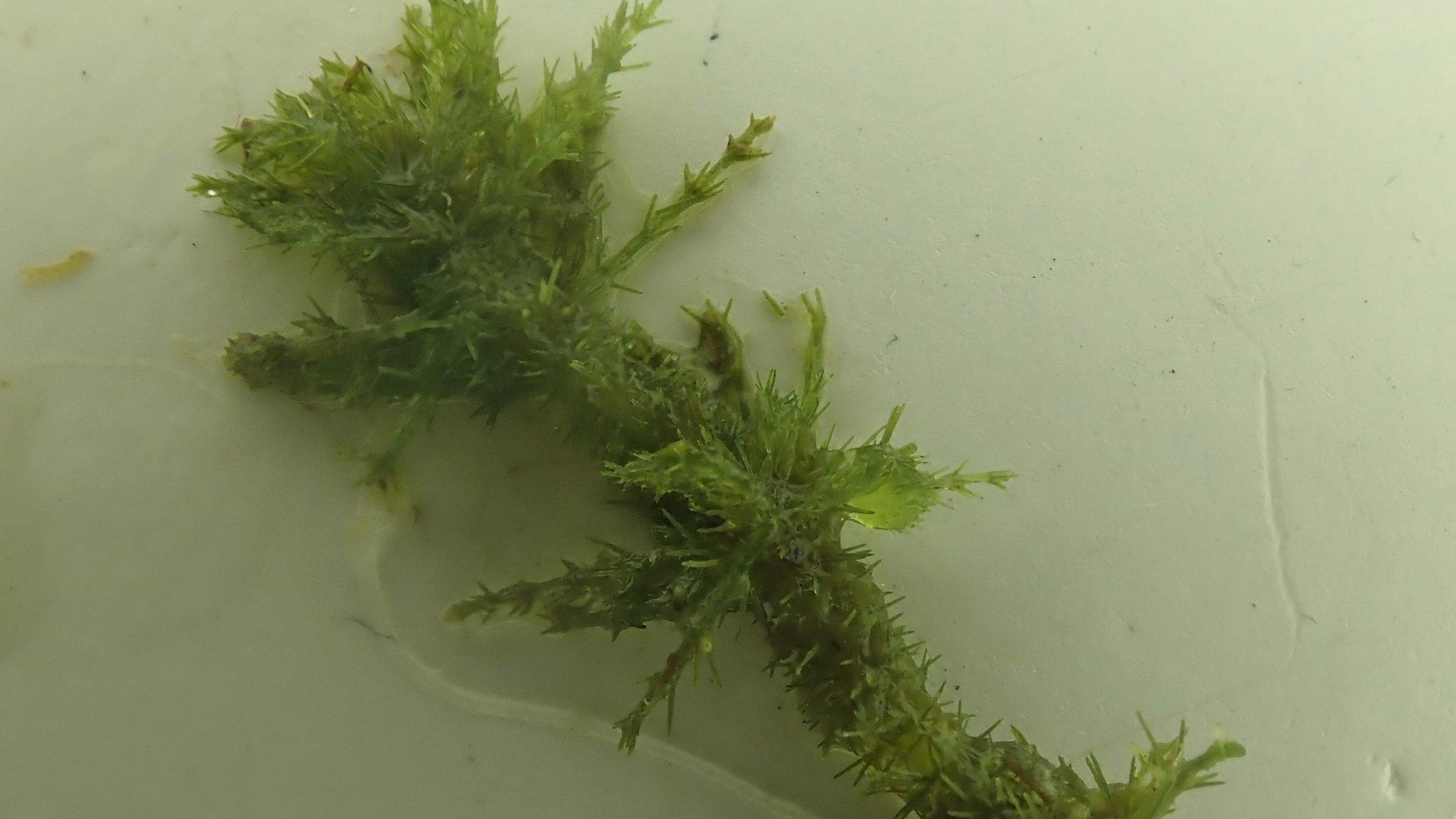Record year for bird breeding and sightings at RSPB reserve
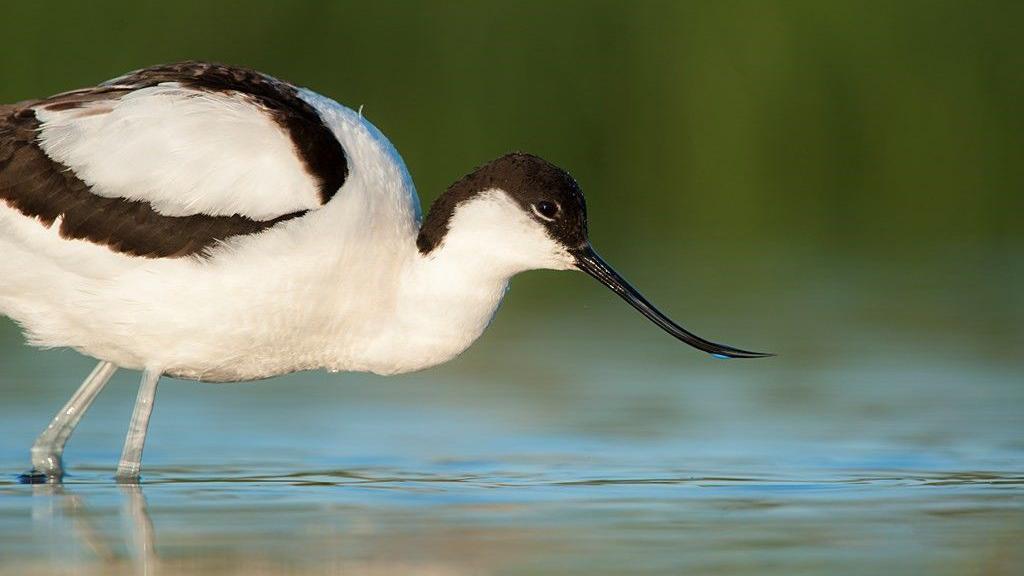
Avocets have bred in 2023 in record numbers at the site
- Published
Wading birds at a wildlife reserve in the north-east of England have bred in record numbers in the past year, a conservation charity has said.
Numbers of avocets, lapwings and redshank had "increased sharply" at RSPB Saltholme, near Middlesbrough, according to staff.
Bitterns had also been found to have bred at the site following some doubt due to them being a "very secretive" species, they added.
Warden Ed Pritchard said it was a "fantastic result for nature" on Teesside.
Mr Pritchard said: “Ground-nesting waders are one of the conservation priorities for this nature reserve.
"To see record numbers of breeding lapwing and avocet is very encouraging for the future of these species in Teesside.”
Bitterns were also a priority species and there had previously been no evidence they were breeding at RSPB Saltholme, he said.
"Bitterns were lost as a UK breeding bird in the 19th Century, but, thanks to work by the RSPB and other conservation organisations, there are now over 200 breeding pairs on over 100 sites across the UK," Mr Pritchard added.
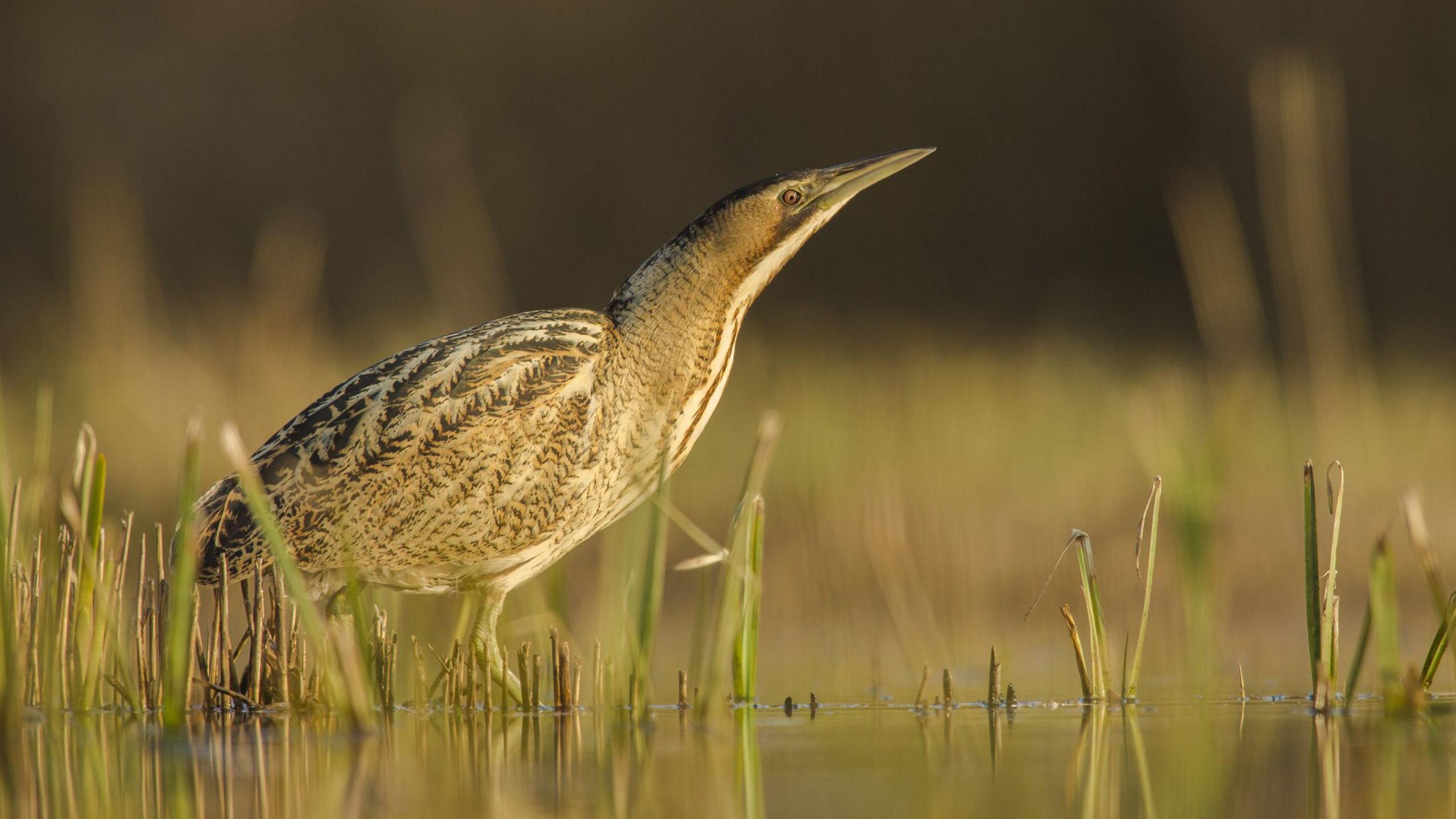
Bitterns are secretive birds and very difficult to spot
A three-mile (4.5km) fence had previously been installed at the site to enclose wet grassland and protect waders including avocet, redshank and lapwing, as well as ground-nesting birds, from predators such as foxes.
As a result, lapwing breeding numbers had increased "significantly" to 85 pairs, from 65 in 2022, with 46 of their chicks fledging.
Meanwhile, there were 62 breeding pairs of avocets, up from 37 last year, with 37 chicks, according to the RSPB.
The 11 breeding pairs of redshank, four pairs of little ringed plover - a rare nesting bird - and five pairs of oystercatcher, were all up on last year as well.
Across the UK, populations of these birds were in decline, with lapwings now on the Red List of endangered species, the RSPB said.
Avocets, which are on the Amber List, are protected by the Wildlife and Countryside Act, which makes it an offence to disturb them.
Staff at the reserve said there had also been sightings of birds rarely seen in the UK.
They said those included a Caspian tern, a buff-breasted sandpiper, and great reed, marsh, and Savi’s warblers - the latter for the first time in 27 years.
Follow BBC Tees on X (formerly Twitter), external, Facebook, external and Instagram, external. Send your story ideas to northeastandcumbria@bbc.co.uk.
Related topics
- Published6 April 2023
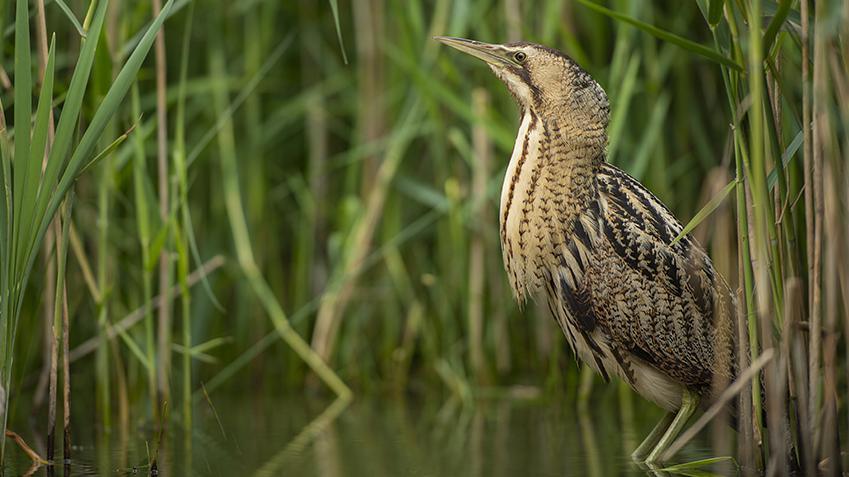
- Published24 May 2023
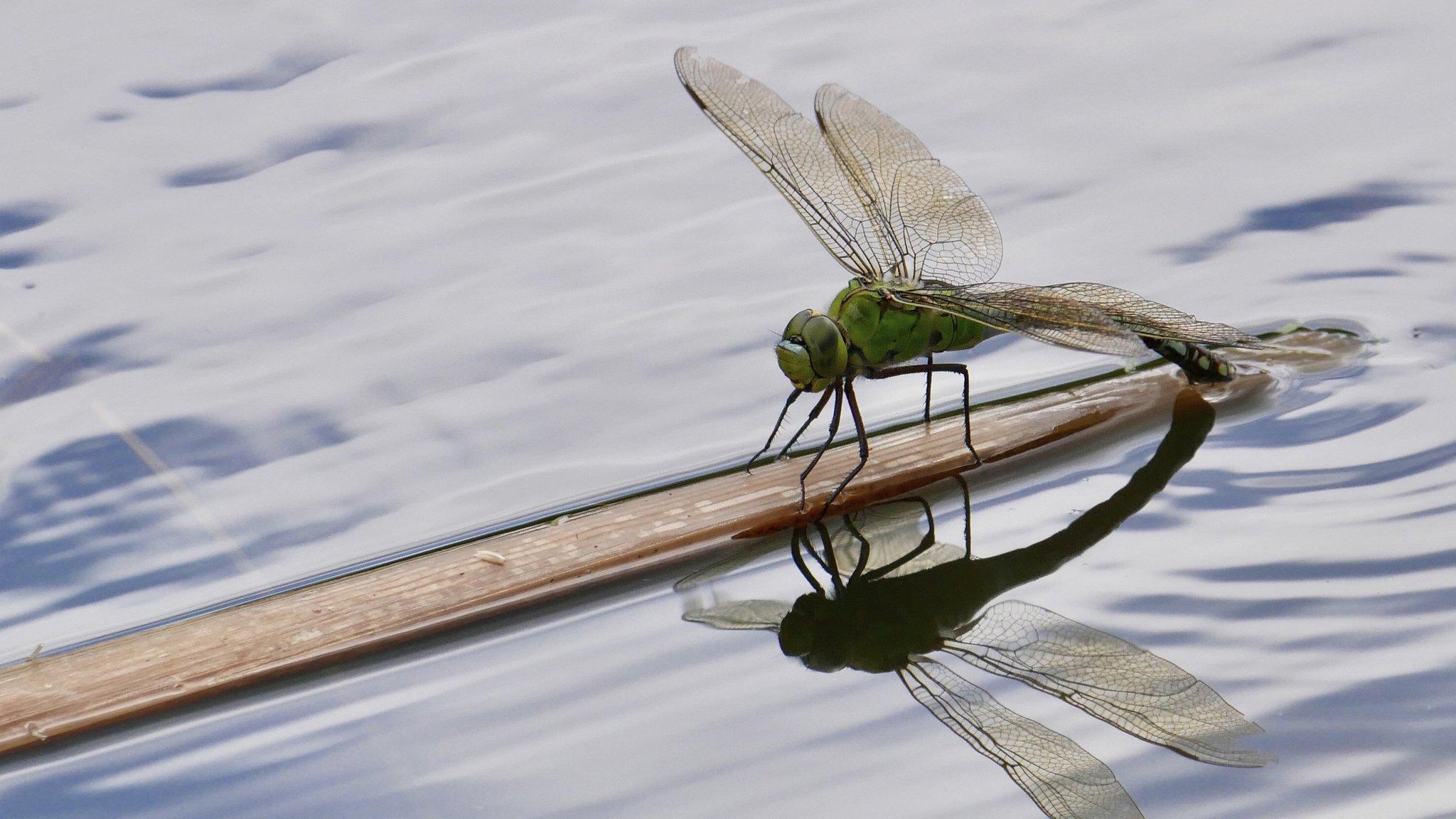
- Published6 March 2021
